MSc Counselling & Psychotherapy
ApplyKey facts
- Start date: September
- Accreditation: BACP (British Association for Counselling & Psychotherapy)
- Study mode and duration: 24 months full-time
Interviews: see apply section.
Study with us
- focus on person-centred therapy throughout the course
- learn to apply one of the leading therapeutic approaches to mental health and wellbeing
- opportunity to undertake work placements with clients in a range of health treatment settings
I gained the confidence to apply the counselling skills and theories I learned directly into my practice. The research skills and international academic studies were also valuable. The tutors combined theoretical knowledge with their clinical experience – a teaching method I found effective and thought-provoking.
Vicki, MSc student from Shanghai, China
The Place of Useful Learning
UK University of the Year
Daily Mail University of the Year Awards 2026
Scottish University of the Year
The Sunday Times' Good University Guide 2026
Why this course?
Person-centred-experiential counselling and psychotherapy is internationally recognised. Evidence suggests it's one of the leading therapeutic approaches to mental health and wellbeing, and it continues to develop important practical applications and theoretical knowledge.
Our long-established postgraduate courses in counselling have offered a unique opportunity to gain in-depth experience of the person-centred-experiential methods applied in counselling and psychotherapy, to Masters level. Our courses have an international reputation and attract students from the UK, Europe, Canada, the USA, China, and India.
The MSc Counselling & Psychotherapy course has been restructured to meet evolving standards for evidence-based practice, rising educational standards, increased professional regulation, and rapid social and economic change. You'll gain a solid grounding and thorough integration of theory, research and practice, as well as a capacity to engage with the wider field of human distress and wellbeing, including private, public and third sector mental health agencies.
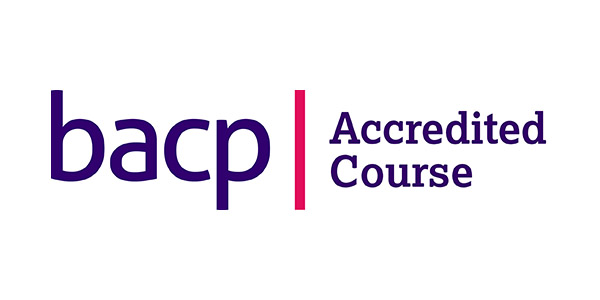

Interested in postgraduate study?
At the Faculty of Humanities and Social Sciences, our friendly and knowledgeable team will be available to provide you with all the information you need to kick-start your postgraduate journey at the University of Strathclyde. Register for upcoming events below:
What you'll study
The emphasis is on person-centred therapy throughout the Counselling & Psychotherapy Masters programme. You'll undertake counselling training, including theoretical, personal and professional development and practical/skills-based components.
An integral part of your course will be training you to work with clients in-person, online and on the telephone. To reinforce this learning in your training you will be expected to work with a number of your placement clients remotely.
The counselling practice element of the training includes the following classes:
- The Therapeutic Relationship
- The Therapeutic Process
- Personality Theory
- Counselling Case Analysis
- Counselling Practicum
- Personal & Professional Development
The Research Dissertation class involves training in counselling research methods and a write-up of a small empirical study, practical case study, or review of research.
Major projects
The Research Dissertation involves training in the main counselling research methods and four options for research projects: a quantitative study, a qualitative study, a systematic case study or a systematic review.
Work placement
You'll receive intensive skills training to prepare you to undertake a minimum of 150 hours of counselling experience. This counselling practice is undertaken with real clients across a range of placements within third-sector organisations, voluntary agencies and other health services, educational and community settings. If you meet your 150 hours before the end of the programme you'll need to continue to see clients until the end of your training.
You'll develop your skills and capacity to practice as a professional therapist leading to accreditation with professional bodies such as the British Association for Counselling and Psychotherapy (BACP) and Counselling and Psychotherapy in Scotland (COSCA).
Strathclyde Counselling & Psychotherapy Research Clinic
The Strathclyde Counselling & Psychotherapy Research Clinic has become an established and vital mental health service open to adults aged 18 years or older across the central belt of Scotland. You'll be supported to organise your own counselling work placement opportunity by our team.
MSc Counselling & Psychotherapy prepares graduates for a career in the counselling professions or offers an opportunity to pursue a career in counselling research. Graduates are skilful practitioners in person-centred therapy and equally equipped to undertake and develop research-informed practice. There is no better platform from which to begin a rewarding career within the field of counselling and psychotherapy”.
Hannah MacIntosh, Full-time MSc course leader
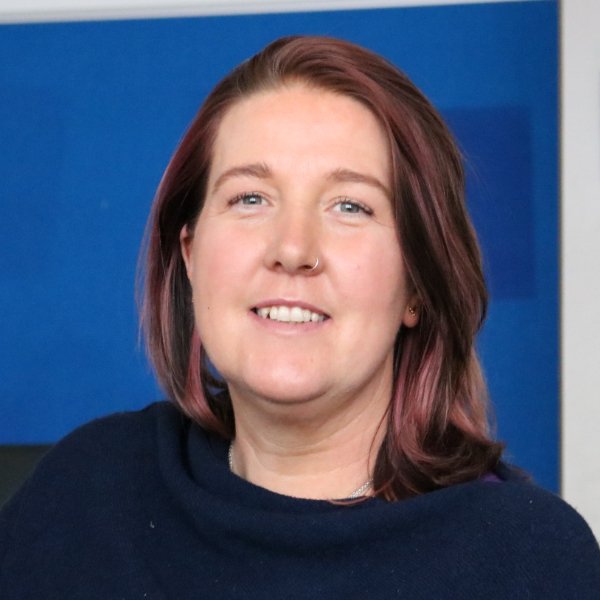
The Therapeutic Relationship
This class provides you with an essential entry point into the person-centred approach, the core model of the course, and provides the theoretical framework to help you focus on the relational qualities which the course aims to develop, namely accurate empathy, unconditional positive regard, genuineness and therapeutic presence.
Personality Theory
You'll learn the theoretical foundations of the person-centred approach, including the nature of human function and dysfunction, as well as how people overcome their difficulties. You'll gain the conceptual tools to support your practice as a person-centred counsellor, leading to greater confidence and clarity in your work with clients.
Residential
Towards the end of the first year, we have the course residential. This is a 3-day immersive residential and a mandatory element of the course. While away we will complete some of the more challenging workshops including, the inner child workshop, anger, and personality mapping. We will also take part in large group personal and professional development (PPD) sessions as well as more informal social sessions in the evenings. The residential is a 3 day, stay away event and all costs are included in your course fees. Dates will be given at the start of term. The residential is an important part of the course and we aim to make it as engaging and supportive as possible. The intention is that trainees have some rare, protected time, while being supported by staff and peers to fully immerse themselves in their personal and professional growth and development. We will be hosted at the University of Stirling for the duration. All meals and small shared accommodation are provided. Single occupancy accommodation is available at a small additional cost. Trainees will be able to make use of the campus facilities and have opportunity to spend time in the beautiful university grounds. The residential is a challenging, but very popular element of the MSc training at Strathclyde and offers a unique opportunity to fully explore your own learning and development.
The residential was a pivotal part of the course for me. I learnt so much about myself and was grateful I didn’t need to go back to my life after each session. I was supported by staff to really explore my own process, and this has helped me in my development as a therapist. I often refer to me learning on the residential, especially the inner-child workshop. It was great to be able to spend more quality time with the rest of the group as well, I feel I made some real friends for life while we were all in it together.
- Former student MSc Counselling and Psychotherapy
Counselling Case Formulation
You'll develop the ability to work together with your clients to develop shared understanding of their difficulties, as these evolve over the course of therapy. This provides the basis for effective, reflective practice and also enables counsellors to communicate effectively with other mental health practitioners.
Counselling Research Dissertation
The aim of this class is to enable you to apply your knowledge and skills to a research project on some aspect of counselling. It involves training in counselling research methods and four options for research projects: quantitative, qualitative, systematic case study, or systematic review.
The Therapeutic Process
You'll learn how to track your moment-to-moment working during counselling sessions. This ability to critically analyse practice is fundamental to effective, ethical work with clients. You'll also be asked to link within-session to broader person-centred theory.
Personal & Professional Development
This class has three main aims:
- encountering one another and learning to prize personal diversity of experience
- developing acceptance and resilience in the fact of difficult processes in self and others
- learning how to resolve interpersonal difficulties.
Counselling Practicum
Learning & teaching
The MSc will be delivered full-time over two years and delivered using a combination of large group formats (lecture/workshop/groupwork) and small group formats (supervision, personal and professional development groups) plus pre-recorded/streaming blended learning inputs.
You'll be expected to supplement class time with directed and self-directed learning and placement experience working with clients in community settings. The research class will be delivered with a combination of lectures on the main research methods in counselling research, and small group tutorials and independent work.
Assessment
Assessment is through summative written assignments and formative assessments which draw on interactions within all the aspects of the course.
Guest lectures
The Counselling Unit has a long tradition of guest lectures, particularly the annual Mary Kilborn Lecture.
Entry requirements
| Academic requirements/experience | First-class or Second-class Honours degree, or an equivalent qualification; COSCA Certificate in Counselling Skills or an equivalent qualification. We do receive more applications than we have places to offer and the calibre of applicant is high. Due to stiff competition for places, deferral is not normally offered. |
|---|---|
| English language requirements | Please check our English requirements before making your application. |
Chat to a student ambassador
If you want to know more about what it’s like to be a Humanities & Social Sciences student at the University of Strathclyde, a selection of our current students are here to help!
Our Unibuddy ambassadors can answer all the questions you might have about courses and studying at Strathclyde, along with offering insight into their experiences of life in Glasgow and Scotland.
International students
We've a thriving international community with students coming here to study from over 140 countries across the world. Find out all you need to know about studying in Glasgow at Strathclyde and hear from students about their experiences.

Fees & funding
All fees quoted are per academic year unless stated otherwise.
Fees may be subject to updates to maintain accuracy. Tuition fees will be notified in your offer letter.
All fees are in £ sterling, unless otherwise stated, and may be subject to revision.
Annual revision of fees
Students on programmes of study of more than one year (or studying standalone modules) should be aware that the majority of fees will increase annually.
The University will take a range of factors into account, including, but not limited to, UK inflation, changes in delivery costs and changes in Scottish and/or UK Government funding. Changes in fees will be published on the University website in October each year for the following year of study and any annual increase will be capped at a maximum of 10% per year. This cap will apply to fees from 2026/27 onwards, which will not increase by more than 10% from the previous year for continuing students.
| Scotland |
|
|---|---|
| England, Wales & Northern Ireland |
|
| Republic of Ireland |
If you are an Irish citizen and have been ordinary resident in the Republic of Ireland for the three years prior to the relevant date, and will be coming to Scotland for Educational purposes only, you will meet the criteria of England, Wales & Northern Ireland fee status. For more information and advice on tuition fee status, you can visit the UKCISA - International student advice and guidance - Scotland: fee status webpage. Find out more about the University of Strathclyde's fee assessments process. |
| International |
|
| Additional costs | Students will incur the following course related costs:
Other costs that might be incurred depending upon the student placement are:
Whilst it's not an essential requirement of the course, we encourage students to become student members of the British Association of Counselling and Psychotherapy. Discounted membership, currently £80 a year, is usually available to students and information is available on their website. A small number of placement agencies ask that you join the BACP before you start with them. Some placements do specify that you need to be a student member of the BACP. Other students opt to take out student membership with COSCA (Counselling & Psychotherapy in Scotland), currently £28, a professional body for counselling and psychotherapy in Scotland. If you are given an offer of study, a deposit may be required to secure your place on the course. International studentsInternational students may have associated visa and immigration costs. Please see student visa guidance for more information. |
| Available scholarships | Take a look at our scholarships search for funding opportunities. |
Please note: the fees shown are annual and may be subject to an increase each year. Find out more about fees.
How can I fund my course?
Scottish postgraduate students
Scottish postgraduate students may be able to apply for support from the Student Awards Agency Scotland (SAAS). The support is in the form of a tuition fee loan and for eligible students, a living cost loan. Find out more about the support and how to apply.
Don’t forget to check our scholarship search for more help with fees and funding.
Students coming from England
Students ordinarily resident in England may be to apply for postgraduate support from Student Finance England. The support is a loan of up to £10,280 which can be used for both tuition fees and living costs. Find out more about the support and how to apply.
Don’t forget to check our scholarship search for more help with fees and funding.
Students coming from Wales
Students ordinarily resident in Wales may be to apply for postgraduate support from Student Finance Wales. The support is a loan of up to £10,280 which can be used for both tuition fees and living costs. Find out more about the support and how to apply.
Don’t forget to check our scholarship search for more help with fees and funding.
Students coming from Northern Ireland
Postgraduate students who are ordinarily resident in Northern Ireland may be able to apply for support from Student Finance Northern Ireland. The support is a tuition fee loan of up to £5,500. Find out more about the support and how to apply.
Don’t forget to check our scholarship search for more help with fees and funding.
International students
We've a large range of scholarships available to help you fund your studies. Check our scholarship search for more help with fees and funding.
Faculty of Humanities & Social Sciences Scholarships
EU Engagement Scholarships are available to EU applicants who would have previously been eligible for Home (Scottish/EU) fee status.
Careers
Graduates have the potential to move into full-time or part-time positions. They may also choose to continue working within the placement they undertook during the Masters, adding to their client experience.
Most UK employers are looking for client-contact hours greater than the minimum 150 hours gained during training. Many students quickly gain part-time employment in agencies offering telephone counselling and also in employee assistance programmes offering short-term counselling to their employees.
We encourage our graduates to work towards professional accreditation which also affords professional registration and recognition. A therapist requires 450 hours of practice to begin the accreditation process and the majority of counsellors also engage in advanced professional development to broaden their professional profile while working towards accreditation.
Ultimately, most counsellors work in a mixture of part-time settings, such as paid part-time work in the NHS or voluntary sector, plus some private practice and/or gaining a qualification to do group work or professional supervision. Other choose to mix their practice with non-counselling employment.
BACP Accreditation
If you graduate from this course with your Postgraduate Diploma, you will not be awarded accreditation status. To qualify for full BACP accreditation you must complete the full Masters programme. Further information is available from BACP.
Our students
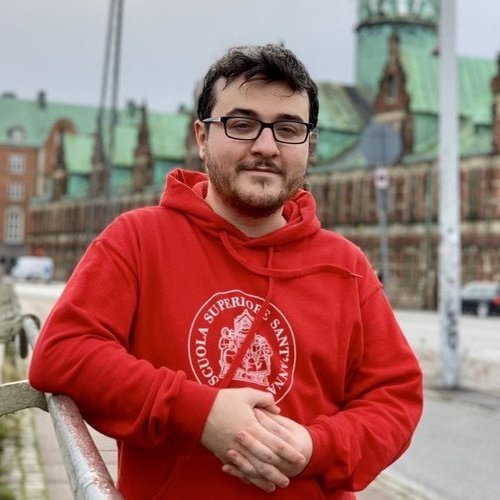
Jason Park
Working in placement gave me the opportunity to apply my learning with real clients and ongoing support. The experience was so useful for instilling confidence that I could apply theoretical knowledge to my practice.

Sumra Anis
In Pakistan, the concept of Mental Health is still new and people are not comfortable with visiting a Mental Health Practitioner in need. I took this gap or challenge as an opportunity and now as a psychotherapist I am spreading awareness of Mental Health in Pakistan.
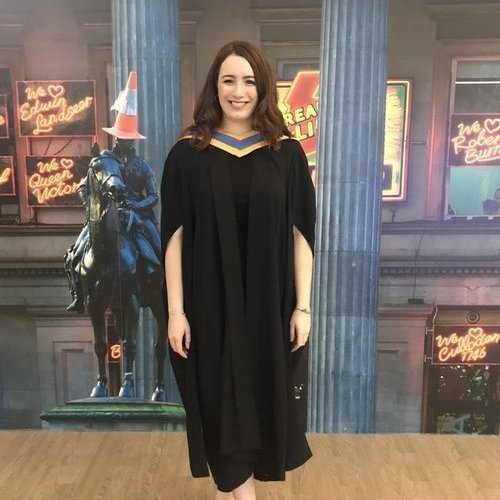
Emily Price
My time at Strathclyde, and particularly on placement, prepared me to manage my varied client caseload and to understand how to maintain boundaries, both within work and between work and my personal life.
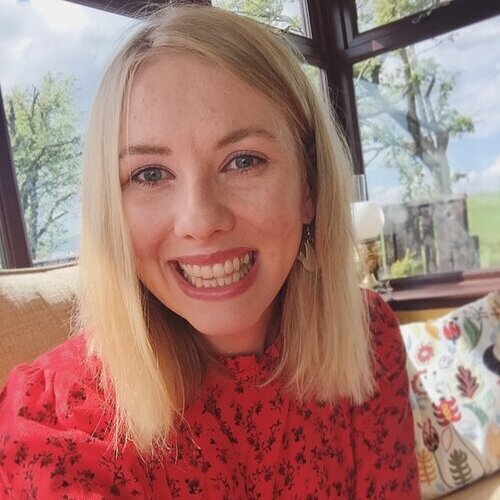
Koren McGeever
I learned so much from my supervision group peers and tutor when we started discussing our client work. I always felt well supported by my supervision tutor when I stumbled across client situations I felt I needed to discuss further or seek guidance on.
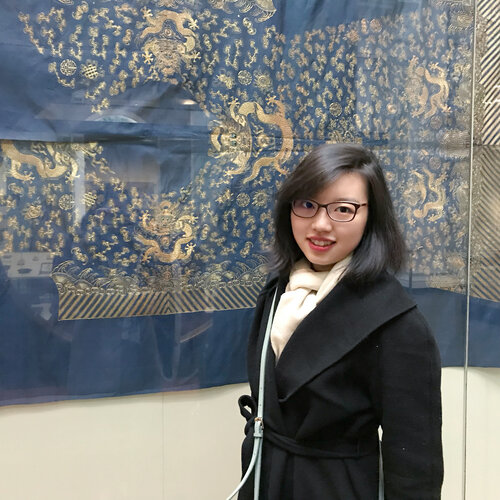
Zoe Zhang
The research clinic taught me about the research side of counselling – in particular, data collection. I am fond of doing that. It also gives me another perspective to understand clients.
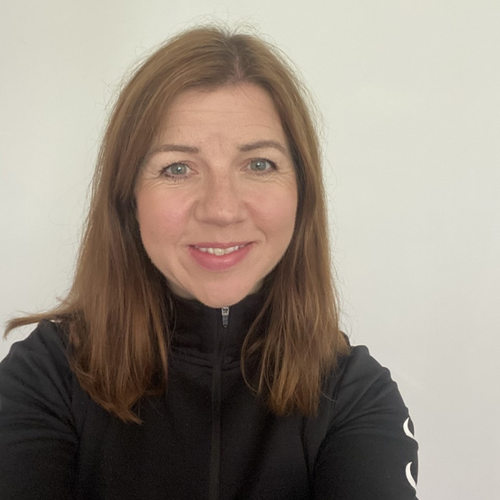
Emma Brown
I was naturally drawn to the modality of person-centred counselling and very fortunate to have a university on my doorstep which has an excellent reputation for its Masters in Person Centred Counselling.
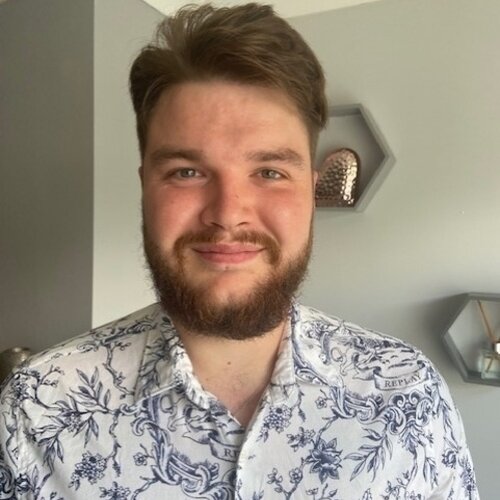
Sam Pattison
Working with clients really does underpin my passion for person-centred therapy, I have watched clients grow and work through presenting issues and issues that come up throughout the course of therapy. My experience of placement has really driven me forward and increased my drive, but it has also enabled me to be confident professionally.
Glasgow is Scotland's biggest & most cosmopolitan city
Our campus is based right in the very heart of Glasgow. We're in the city centre, next to the Merchant City, both of which are great locations for sightseeing, shopping and socialising alongside your studies.
Apply
The application process for the programme is detailed below:
Stage 1: Applications are received and reviewed by our team to ensure that applications meet the published entry requirements. Successful applications go on to stage 2.
Stage 2: Successful applications are ranked based on answers given in the person-specific questionnaire as part of the application form. Successful applications are forwarded to stage 3.
Stage 3: In-person group interviews will take place for applicants from Scotland, England, Ireland and Wales. Online interviews will take place for international applicants. During the interview, applicants are asked to demonstrate their counselling skills, interpersonal skills and emotional intelligence.
Please note that places are limited, and applicants will be updated at each stage of the process. You will be advised of the following outcome:
- successful - offer made
- placed on waitlist
- unsuccessful
Start date: Sep 2026
Counselling and Psychotherapy
Contact us
Prospective student enquiries
Contact a member of our team on LiveChat between 10am and 4pm (GMT)
Telephone: +44 (0) 141 444 8600
Have you considered?
We've a range of postgraduate taught and Masters courses similar to this one which may also be of interest.

